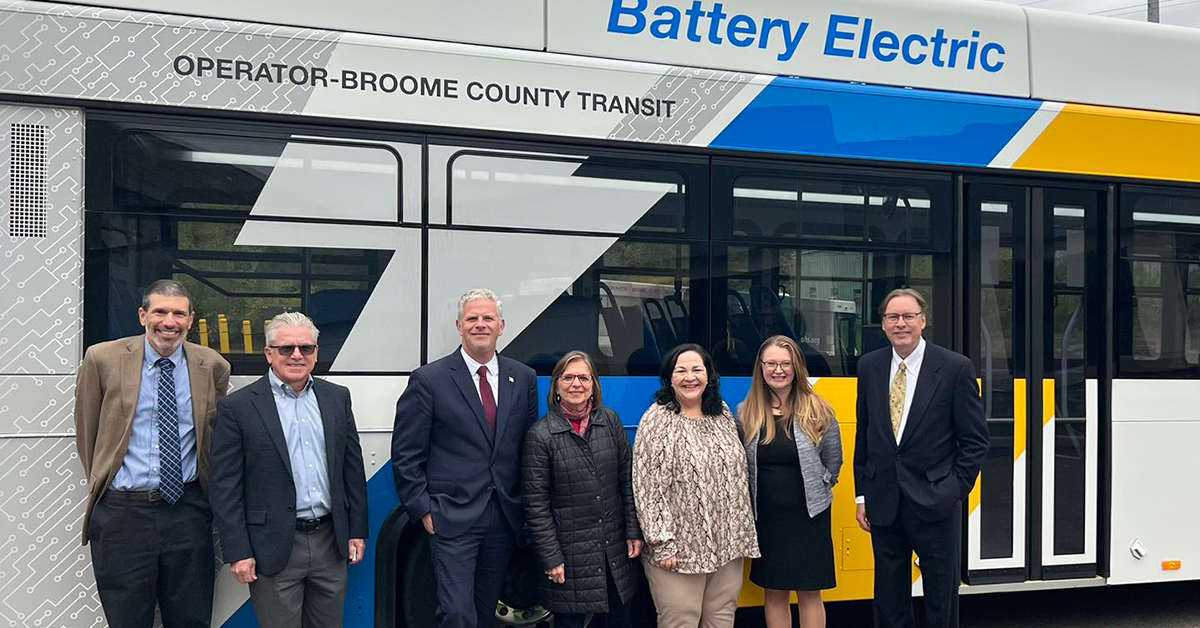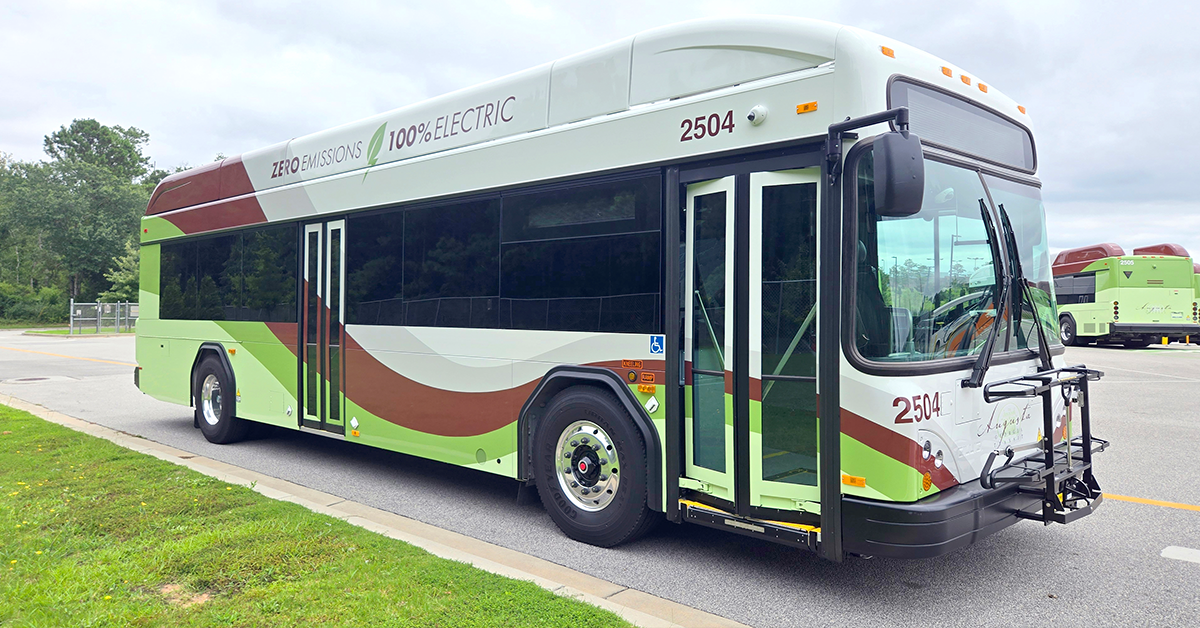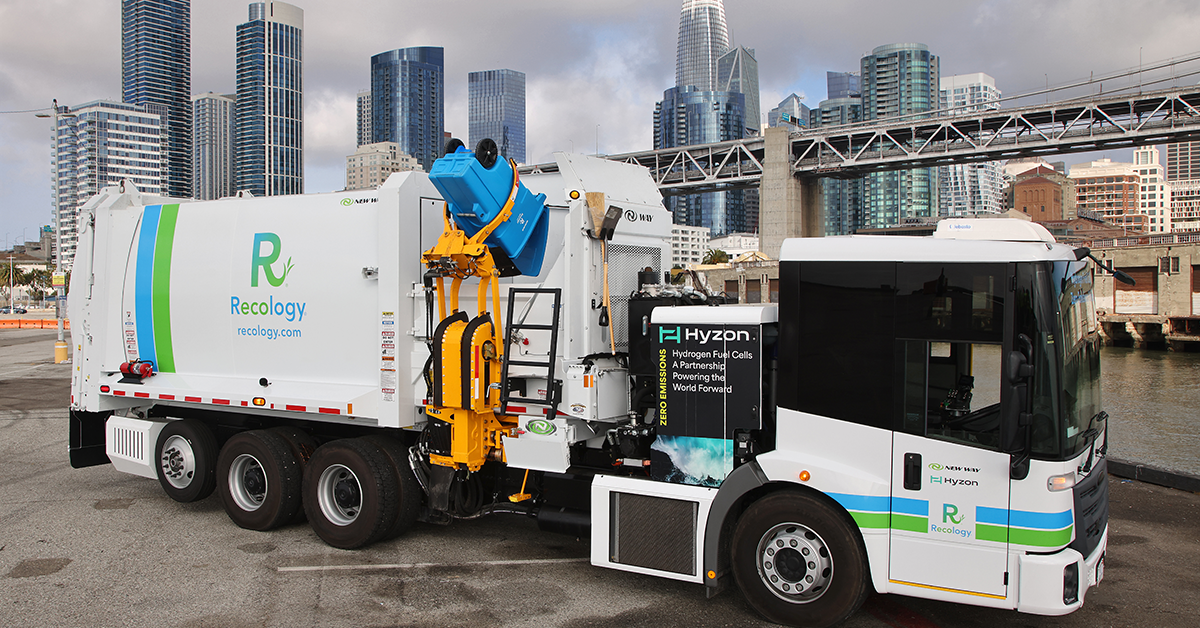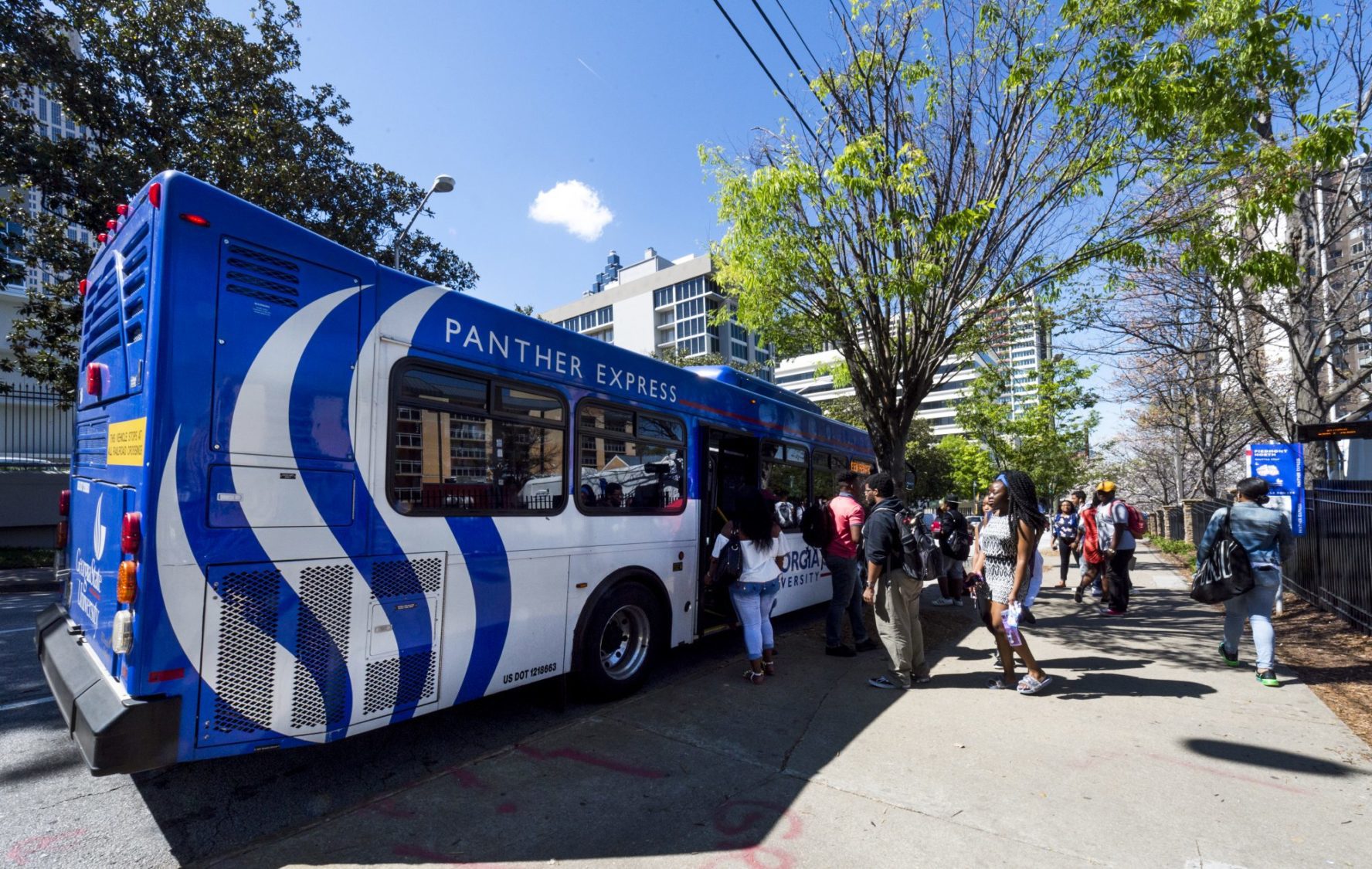
Austin, TX - January 26, 2015 -
The Center for Transportation and the Environment (CTE) and project team are excited to announce the delivery of a new zero emission Proterra fuel cell bus to Austin, TX. The bus will join Capital Metropolitan Transportation Authority's (Capital Metro) regular fleet and be operated in daily transit service.Capital Metro will operate the new hydrogen fuel cell bus as part of the University of Texas' shuttle system. This technology development and demonstration program is supported by the Federal Transit Administration (FTA) as part of their National Fuel Cell Bus Program (NFCBP) to assist the commercialization of fuel cell technologies. Project partners will equally match federal funds with local ones to complete the demonstration.
This Proterra fuel cell bus is based on Proterra's 35-foot battery electric bus design with the addition of two roof mounted hydrogen fuel cell Auxiliary Power Units (APU). Each APU converts hydrogen directly to electricity, supplying enough clean electric power to support most transit routes with only a single APU operating. The Proterra bus is on the forefront of advanced transportation technology featuring two 33 kW Hydrogenics HD30 fuel cell units and the same high power lithium titanate batteries as Proterra's fast charge buses. The only exhaust from the fuel cells is pure water.Located in Greenville, SC, Proterra is an American bus manufacturer specializing in zero emission buses. Hydrogenics Corporation developed the fuel cell modules for the bus. Gas Technology Institute is responsible for upgrading the fueling station in Austin to support the bus, and the University of Texas - Center for Electromechanics is responsible for data collection and analysis.
When the upcoming 1-year Austin demonstration is complete, the bus will be delivered to Washington, D.C. to operate for another full year in regular transit service."
Austin has long been a pioneer in advancing clean energy and will be a great demonstration site for Proterra's newest zero emission fuel cell bus in regular transit service. The project team is excited to have the bus delivered to Austin, and is looking forward to working with Capital Metro to integrate the bus into normal operations," said Erik Bigelow, CTE's Project Manager.A media event will be held in the coming months.
About CTE
The Center for Transportation and the Environment (CTE) is a nonprofit, 501(c)(3) organization based in Atlanta, Georgia with a west coast office in Berkeley, CA. CTE facilitates the rapid development, commercialization, and public acceptance of alternative fuels and advanced transportation technologies. Since its founding in 1993, CTE has managed a portfolio of more than $290 million in federal, state, and local cost-shared research, development, and demonstration projects involving more than 200 organizations in the advanced transportation technology field. CTE has facilitated and leveraged funding for its projects and initiatives from the U.S. Departments of Defense, Energy, Interior, and Transportation, as well as from the U.S. Army, Environmental Protection Agency, and NASA, among many others.
About Proterra
As a world leader in the design and manufacture of zero-emission vehicles, Proterra enables bus fleet operators to reduce operating costs and deliver clean and quiet transportation to their communities. Proterra was the first company to deliver a full-size transit vehicle that met California's Zero-Emission Bus Rules with their first generation EcoRide. Their buses offer over five times the MPG equivalent versus diesel and CNG equipment and allow on route fast charging to keep the fleet moving quickly. For more information on Proterra please visit www.proterra.com.
About Hydrogenics
Hydrogenics is a leading global developer of clean energy solutions, advancing the Hydrogen Economy by commercializing hydrogen generation (electrolyzers) and fuel cell power generation products. The company has a portfolio of products and capabilities serving the hydrogen and energy markets of today and tomorrow. Hydrogenics' two core areas of business include: 1) On-Site Generation (hydrogen generation systems for a full range of hydrogen applications) and 2) Power Systems (fuel cell power products, with particular focus on fully integrated power modules and fuel cell hybrid power packs). These areas of business contribute to Hydrogenics' ability to provide innovative energy solutions for its clients including: original equipment manufacturers (OEMs) who are introducing hydrogen and fuel cell capabilities into their advanced technology products and services; industrial gas end-users and merchant gas companies; system integrators; and technology demonstration programs (typically government or consortia sponsored).
About University of Texas Center for Electromechanics
The Center for Electromechanics (CEM) is an applied research unit specializing in advanced energy storage and power generation systems for over 40 years. CEM serves the University as an effective interface to industry and teams with companies to bring advanced technologies to market. With funding from DOE, DOD, and USDOT, current and recent projects in the transportation sector include zero-emission fuel cell and electric vehicles, active suspension for improved ride control, and natural gas compression for home refueling of natural gas vehicles. www.utexas.edu/research/cem





